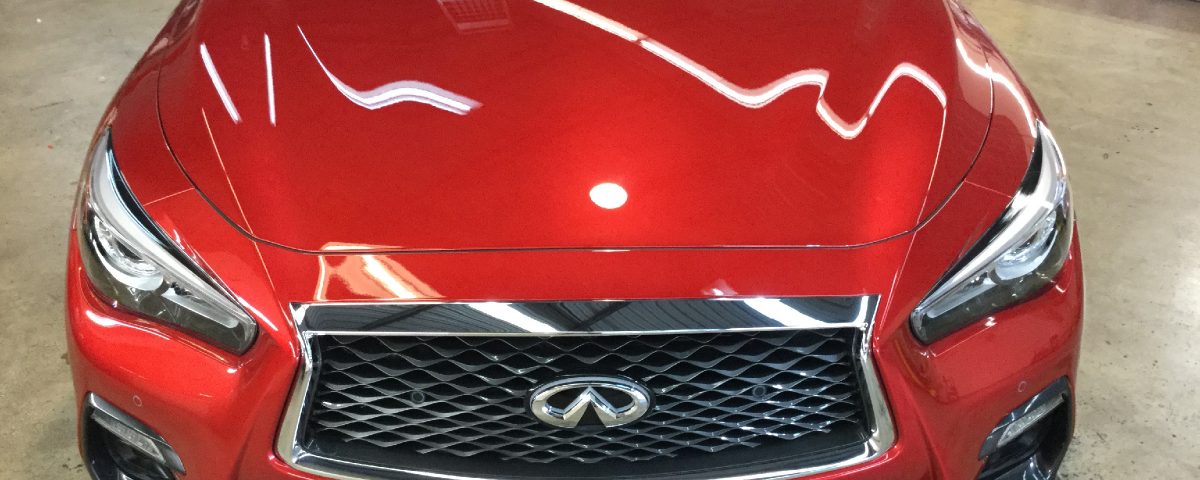
Tricks to Protect Your Car from Mother Nature
October 10, 2023
Ways to Protect Your Car Paint
November 6, 2023Winter can be a difficult season for automobile owners, with cold weather, slippery roads, and severe conditions all taking their toll on your cherished asset, it’s vital that you take good care of it.
For your car to go through the season without any damage, there are several things you should do.
Buckle up and get ready to give your vehicle the love and attention it deserves.
Take care of the aesthetics.
Most people take pride in their cars, so you should keep yours looking beautiful and new.
You should address any scratches or blemishes as soon as possible, preferably using high-end materials or the services of expert detailers.
It is also critical to thoroughly wash and wax your vehicle before the winter season arrives. This will protect the paint against salt, grime, and other particles that can accumulate on highways over the winter.
Remember to keep your wheels in mind. Due to road salt and ice melt chemicals, winter may be harsh on alloy wheels.
You should clean your wheels using a non-acidic cleaner. This will help retain their gloss and prevent rust.
Investing in decent car coverings or parking your car in a garage can also help protect the exterior of your car from harsh winter elements like snowstorms and hail.
Consider adding a layer of paint protection film or a ceramic coating for improved durability against rock chips and scratches.
Remember the headlights and taillights. During the winter months, when visibility may be limited, it is critical to ensure that all lights are clean and functional for maximum road safety.
Take care of the interior.
Maintaining your car’s interior is equally as vital as maintaining its appearance. After all, this is where you spend most of your driving time.
First, purchase high-quality floor mats to protect the carpet from dirt, mud, and salt that may be tracked in.
You should vacuum and clean these mats regularly to help avoid damage and stains.
Next, be cautious about what you bring into your car during the winter. Wet umbrellas, wet boots, and damp clothing can introduce moisture into the cabin, allowing mold or mildew to form.
To protect such objects from damage, use waterproof coverings or bags.
Another critical consideration is keeping the chairs clean and well-maintained. Choose seat coverings made of long-lasting, easy-to-clean fabrics.
Wipe down leather seats regularly with a gentle cleaner formulated exclusively for car upholstery.
Consider purchasing a vehicle humidifier to fight the dry air created by heating systems in the winter. This can assist in maintaining correct humidity levels inside your car and prevent leather surfaces from drying up.
During the winter, watch for any peculiar odors or sounds from your vehicle’s cabin.
These could be warning signs of future problems that require prompt treatment from a professional mechanic.
Install good quality tires.
Good quality tires are a must when it comes to maintaining your car during the winter months. The state of your tires can significantly impact not just the performance but also the safety of your car.
Verify that your tires have adequate tread depth. This is essential for good traction on slippery or snowy routes.
If the tread depth is too low, it’s time to get a new pair of winter tires made exclusively for cold weather.
In addition to tread depth, tire pressure is a significant consideration. Tire pressure might drop in cold temperatures, so check and adjust it regularly. Underinflated tires can cause poor handling and fuel efficiency.
Additionally, rotating your tires regularly helps distribute wear more equally across all four wheels. This provides consistent performance and increases their longevity.
Have a tight maintenance schedule.
Staying on top of your maintenance plan is critical when keeping your car in great shape during the winter months. Regular maintenance not only ensures that your car functions smoothly but it also aids in the prevention of possible problems.
To avoid problems, follow the manufacturer’s recommended servicing intervals. Regular oil changes, filter replacements, and checks of critical components such as brakes and suspension are all part of this.
Following these instructions will assist you in keeping your car in top condition.
Pay attention to crucial locations that may require extra care throughout the winter in addition to usual maintenance.
Check the battery, for example, frequently because cold temperatures might affect its efficiency. Ensure all fluids are full, especially coolant and windshield washer fluid, which is critical to maintaining peak performance.
Take the initiative to address any warning indications or unexpected noises coming from your car. Remember that ignoring such warning signs could lead to more serious problems.
Keep the car clean.
Cleaning your car regularly is important not just for appearances but also for preserving its value and longevity.
During the winter months, when road salt and slush are abundant, it is even more vital to give your car a thorough wash, since salt can harm the paintwork and undercarriage of your vehicle if not properly removed.
Begin by properly washing your car with a light soap solution that will not damage the finish.
When cleaning, pay special attention to dirt-prone areas such as wheel wells and undercarriage. To avoid scratching the paint, use a soft microfiber cloth or sponge.
After cleaning, properly dry your car with a clean towel or chamois cloth to avoid wet marks on the surface.
In addition to regular washing, consider using a protective wax or sealer to keep your car’s exterior gleaming. You can do this in a protective car film shop Springfield or any other reputable store.
The film will add a layer of protection against the elements and keep your paint looking new.
Drive the car frequently.
It is critical to use your vehicle frequently to keep it in good shape during the winter months. While this may seem like a straightforward recommendation, many car owners disregard its significance.
Driving your car has various advantages. It keeps the engine operating smoothly and avoids the formation of hazardous deposits.
Regular driving also improves the lubrication of many components, extending their life.
You can avoid problems like battery loss and tire flat spots by using your automobile frequently.
As you are driving your vehicle, you can spot problems before they become big concerns.
Operating your car regularly has been found to improve overall performance and fuel efficiency. This is because regular use keeps all critical systems running smoothly and optimizes their performance levels.


